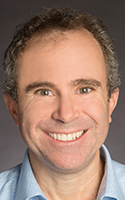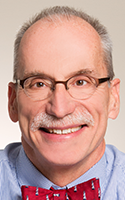Common Ground Health is asking for everyone’s health story to help shape policies, programs, and care in the region
By Colleen M. Farrell

An older farmer in Wayne County and a young mom in Rochester may not seem to have much in common other than they each have diabetes.
But dig a little deeper and it becomes apparent that both have trouble affording test strips, causing them difficulty in man emphysema aging their condition.
The more than 1 million people spread across Rochester’s nine-county region share a lot of similarities and notable differences when it comes to their individual health.
There is already data available on some of it. Within the next few months, there will be more, thanks to a survey conducted by Common Ground Health.
For example, recent analysis shows that opioid overdoses have increased across all populations, that African-Americans struggle with higher rates of heart disease compared to other groups, and that early death rates are as high in rural areas as they are in poorer urban neighborhoods.
Community health planners are trying to find out the “why” behind impediments to healthy living through a new survey.
“We’re really trying to understand: why are people having certain challenges with their health?” said Marc Solomon, a senior research associate at Common Ground Health, a nonprofit regional health planning agency.
The idea for the survey was borne out of the agency’s health equity work, which looks at what racial and ethnic disparities exist in the region to ensure disadvantaged and underserved groups are represented in community health planning.
“We know disparities exist, but what we really wanted to do is understand what are the barriers people face to staying healthy and managing conditions when they’re not as healthy as they’d like to be,” Solomon said.
The questions are open-ended. So, if respondents indicate they have hypertension, they are also asked if they feel like they are managing the condition well and what resources and factors help or hinder their care.
Barriers may include lack of access to healthy food or transportation issues and inadequate childcare, making visits to the doctor a challenge. Resources could include taking advantage of local farm stands, being on a bus line, or telemedicine.
The architects of “My Health Story” hope to hear from a wide swath of people across socioeconomic, racial, ethnic, age, and gender lines.
“The broader of a response we can get from the population in all our counties, the more likely we are to be able to find those areas where small investments may have much bigger outcomes,” said physician Thomas Mahoney, chief medical officer for Common Ground Health.

Mahoney explained how something as simple as providing air conditioners to patients with asthma or emphysema could alleviate some of their breathing problems, helping them avoid respiratory distress that sends them to the hospital. That ends up not only being bad for their overall health but also costs them, their insurance companies, and the public a lot more.
“As an agency, we have a lot of interest in where policy can take these things,” he said. “The hope is that we can end up putting the investments into the places where it’s going to have the most significant impact.”
The survey, available at www.commongroundhealth.org, can be taken on a computer or smartphone. In addition, representatives from Common Ground Health have been attending events this summer in the community to reach people. The survey is also available at area public libraries, as well.
Responses are being collected through Labor Day, Sept. 3. Solomon expects it will take a few months to comb through the data, after which it will be publicized and used to shape future health planning decisions.
“We’re excited about it because I think it’s a really nice complement to a lot of statistics and secondary data sources we have around prevalence of disease and health care,” he said.
